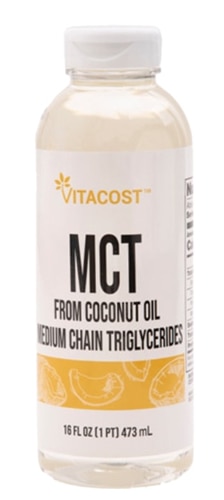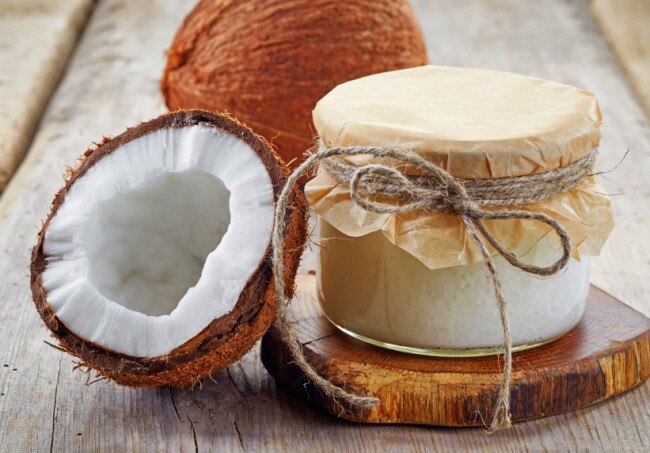It’s delicious and easy to cook with, but is coconut oil as healthy as they say it is? For many years coconut oil was relegated to the list of bad saturated fats, which included beef fat, chicken fat, butter and lard. In the past few years, however, it has gained a reputation of being a healthy saturated fat. This is because its molecular structure, a medium chain triglyceride (MCT), is significantly different than the saturated fats found in animal products. MCTs support the health of the body in many ways, whereas saturated fats from animal sources can be detrimental to health.
Coconut oil contains lauric acid, a compound that’s known to have some properties that naturally support the body’s immune system. There’s also a wealth of research showing that coconut oil’s favorable MCTs support heart, immune and overall health. They may also support healthy weight by supporting a healthy metabolism.*
An added bonus is that coconut oil is a safe oil to cook with. Many oils break down when exposed to high heat, but coconut oil, being a saturated fat, holds its chemical structure even with higher temperatures. Note that olive oil is a great monounsaturated fat, and is safe to cook with at lower temperatures, but at higher temperatures it breaks down and leads to the formation of free radicals -- unfavorable molecules that could damage tissues and cells. So coconut oil is the oil of choice when cooking at high heat or when making pancakes, stir frying, or doing a quick sauté. It can also add a lovely flavor to many dishes.
Should you incorporate coconut oil into your diet? It's a great idea to use coconut oil when appropriate, such as in high-heat cooking, or to spread onto toast with cinnamon and honey. But at the same time, remember that consuming too much fat can contribute to weight gain.
If you’re trying to maintain a healthy weight, it’s important to be aware of how many calories you ingest compared to how many calories your body burns. Each gram of protein, and each gram of carbohydrate, provides your body with 4 calories, whereas each gram of fat provides your body with 9 calories. If you have too much fat in your diet -- including the healthy fat in coconut oil -- you’ll significantly increase your caloric intake to the point that you could end up gaining weight. But coconut oil is beneficial when consumed in moderation, so using some in your diet is a good idea.
You can also use coconut oil as a moisturizer to help nourish dry skin, and it’s found in many lip balms. In addition, it can be used as a vaginal lubricant prior to intercourse, or at other times to keep the tissues of this delicate area of a woman’s body hydrated.
Many women use pure coconut oil in their hair before swimming in a pool, or in the ocean, to help protect their hair from harsh chemicals and minerals in the water. You can also find coconut oil as an ingredient in many shampoos and conditioners to support hair health.
Enjoy coconut oil -- a healthy fat with many potential benefits!
*These statements have not been evaluated by the Food and Drug Administration. This product is not intended to diagnose, treat, cure or prevent any disease.




